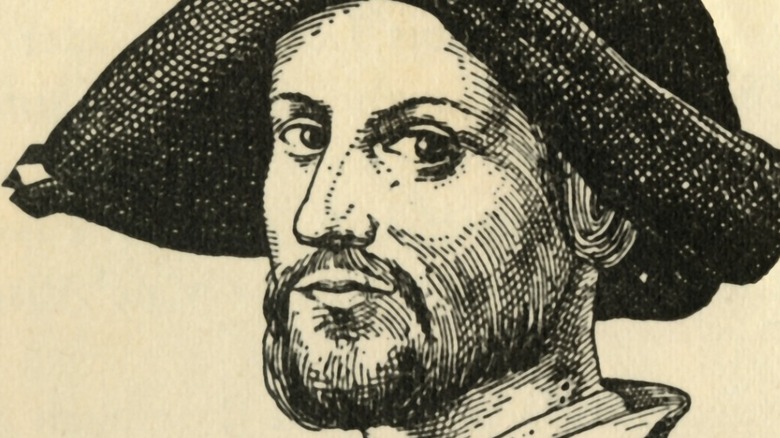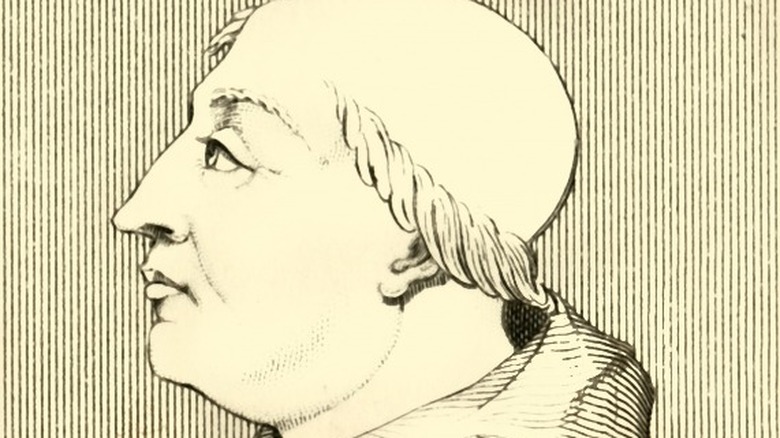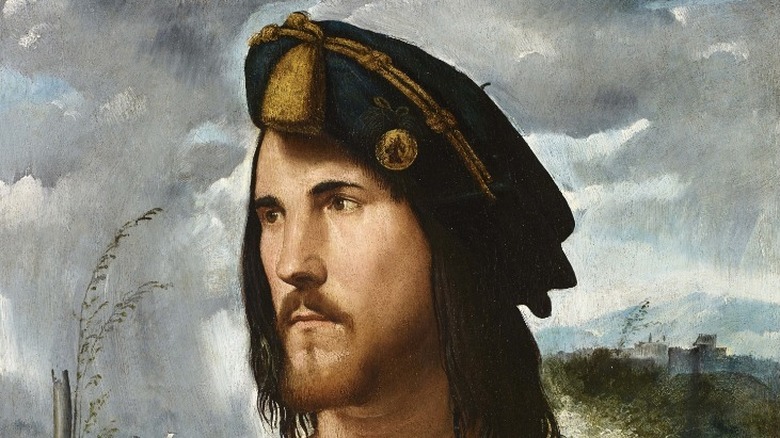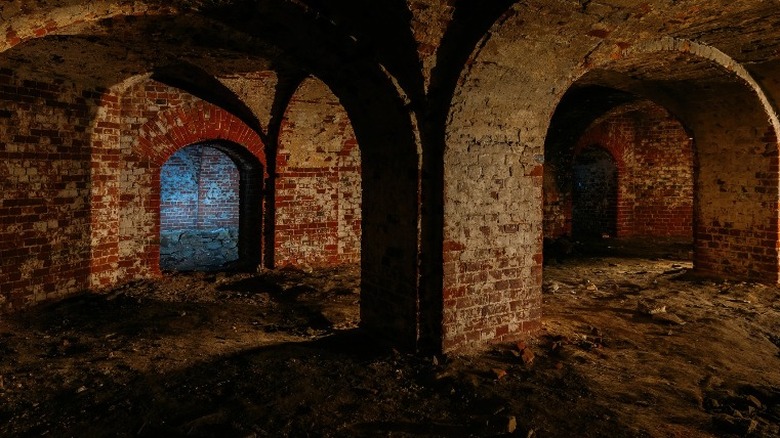The Twisted Truth About The Dark Lord Of Rome
Historians have long written about the storied Borgia family of Italy. This power hungry family exerted an enormous amount of control during the 15th and 16th centuries, holding positions in high political power as well as in the Catholic Church. Though they made substantial patronage to the Renaissance by funding various artists, they have historically been deemed a corrupt family, whose rise to power involved bribery, extortion, and murder.
One of the more notable members of the Borgia clan was fourth generation member Cesare Borgia, the illegitimate second son of Rodrigo Borgia. Cesare's dynamic personality and bold power grabs caught the attention and admiration of Niccolò Machiavelli, who spent four months with him. Machiavelli, a diplomat at the time, would later turn historian and philosopher. His most well-known work, "The Prince," was directly inspired by Cesare Borgia (via Journal of Information).
With a lot of family support and a whole lot of power at his young fingertips, Cesare Borgia would emerge from his home city with numerous plans for elevating both his status and his control, each one more nefarious than the last. How did his actions earn him the moniker "Dark Lord of Rome?"
Dark upbringings
Cesare Borgia might be an example of what will happen to you if your father is pope, who had to deny your existence. Borgia's father, Rodrigo, rose quickly through the ranks of the Catholic Church and was a cardinal by the time Cesare was born. The elder Borgia, being a man of the cloth, couldn't be openly fathering children. So Cesare and his three siblings were publicly being raised as the nephews and nieces of the cardinal (via Factinate).
The cardinal was power hungry and corrupt, but his moral shortcomings paid off in spades. He was able to bribe his way into the papacy, becoming Pope Alexander VI in 1492 (via History Today). It was then that he publicly acknowledged the four children as his own, giving them legitimacy. Using his power as the pope, he appointed his children into positions of influence and authority. Even at the age of 15, young Cesare was made into a bishop. By 18, he was elevated to cardinal. Cesare's older brother Giovanni was being trained to lead papal military forces, with his high-ranking position secured by his pope father (via Factinate).
Giovanni Borgia's rising star burned out quickly. His lifeless body was found on the banks of the Tiber river on June 14, 1497. Along with the lifeless body of his personal attendant were their personal effects and plenty of gold. The latter ruled out any possibility of a robbery, and suspicions were held that rival Italian families had taken out the pope's eldest child to send a message (via Factinate). This death also made the rise of Cesare a possibility.
A power hungry leader
Though young, Cesare Borgia had been able to make some powerful friends. One such ally was King Louis XII of France, who had just ascended the throne (via Factinate). Borgia, along with the new king, hatched a plan to grow their power together. In an unprecedented move, Borgia quit his position as cardinal and was appointed Duke of Valentinois. Within a few years, Borgia held the distinction of being the newly appointed leader of the papal army, which the French king used to his advantage.
Borgia and his army swept into small cities that had been ruled unchecked by vicars of the Catholic Church for generations. Borgia's father, meanwhile, was busy creating positions of power for anyone who would cough up the funds for it. This money was transferred to the younger Borgia, who would in turn use the funds to hire mercenaries for battle or for bribing local nobility.
After years of storming through Italy, Borgia began to make more enemies than he had admirers. Knowing that at some point his father would pass and eliminate his immediate papal connection, Borgia ramped up his efforts for total control of the state. Ordering the strangulation of suspected traitors in his ranks was supposed to elevate his control over the Italian people by fear, but it backfired spectacularly. A cardinal invited Borgia and the pope to a dinner party, at which each fell gravely ill from an assassin who poisoned them. Of the three, only Borgia survived.
Betrayal and death
Pope Alexander VI died on August 18, 1503, and was promptly replaced by a rival of Borgia's, Giuliano Della Rovere. Rovere attempted to make peace with Borgia, but to no avail. Borgia left Rome in a fury, his anger rivaling that of the man who would become Pope Julius II. The new pope ordered Borgia's arrest, and papal forces succeeded in his capture. After a daring escape, Borgia was on the run and rebuilding alliances. He was caught and sent to prison in Spain, where he again escaped, but was severely injured by a fall in the process (via Factinate).
Cesare Borgia was able to rekindle an old alliance, however, this time with the brother of his estranged wife, King John III of Navarre. The two of them set out to defend Navarre, with Borgia making his final stand in battle at the town of Viana. There, he was surrounded by enemy troops and stabbed to death, his lifeless and mostly naked body left on the ground. He was 31 years old (via Factinate).
In a short span of time, the boy who became cardinal ravaged much of Italy, instilled fear in the hearts of his countrymen, and inspired one of the greatest political philosophers of all time (via Forbes). But like so many with so much power, he abused it in such a way that he will forever be known as the Dark Lord of Rome.



